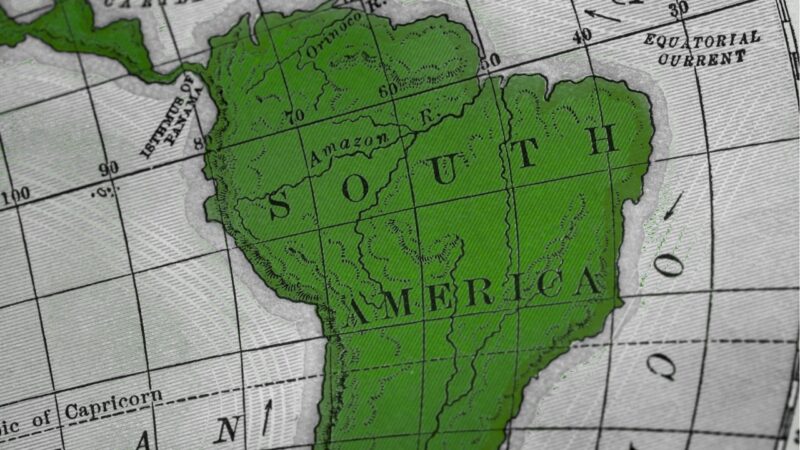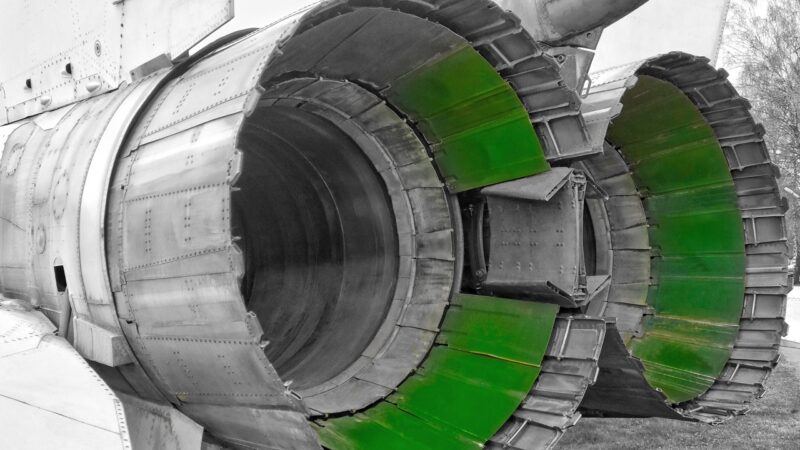Hostages to Peace, or To Each His Own Normandy Format
The meeting held on 9 December 2019 in Paris presented many risks for Ukraine, a number of threats for leading countries of the EU, and some opportunities for the Russian Federation. A short time later, we have to admit that Russia used the situation to its best advantage.
I should note that the previous meeting of the Normandy Four took place back in the fall of 2016. That time, the participants included François Holland as president of France and Petro Poroshenko as president of Ukraine (we also know that Poroshenko publicly voiced several points of advice for the current Ukrainian president, Volodymyr Zelensky, on the eve of the meeting in Paris). Let us recall that in the summer of 2014, on behalf of the Western collective Germany and France essentially took upon themselves the responsibility to resolve the conflict in the Donbas. Their failure to settle the largest war in Europe in the past two decades has undoubtedly diminished the authority of both France and Germany—not least within the G-7, the EU, and NАТО.
Here are the positions of both sides of the Russian-Ukrainian war and of other interested parties.
Ukraine. In the second half of 2019, Ukrainian political leaders virtually ceased criticizing Russia altogether. President Zelensky called Russia the “aggressor” only once, from the podium of the UN General Assembly. On the other hand, Ukraine made significant concessions to the Kremlin in order to achieve the Normandy Format meeting. Ukraine’s Armed Forces withdrew from the front lines of the conflict in Stanytsia Luhanska, Zolote, and Petrivske, which Russia had demanded since 2016. Ukraine acquiesced to the “Steinmeier Formula” as a basis for resolving the conflict in the Donbas. Ukraine agreed to an exchange of prisoners of war in September 2019 on Russia’s terms (including the 24 Ukrainian sailors captured illegally by Russia in Ukrainian territorial waters in November 2018) and to the return of damaged ships of the Ukrainian Navy.
Zelensky asserted that his priorities in Minsk were to free the prisoners “all for all” and to achieve an authentic ceasefire. He stressed that elections in the so-called “ORDLO”[1] would be possible only after Ukraine regained control over the border in the Donbas. The president was cautious in speaking about the possibility of a limited amnesty for participants in illegal armed units. The Ukrainian president emphasized his willingness to meet his Russian counterpart one on one.
It is also worth noting the statements made by the president’s aide in international affairs, Andrii Yermak, during Chatham House’s “Ukraine: Great Expectations” conference prior to the Normandy Format meeting. He declared that Ukraine was willing to amend its constitution after the meeting of the Normandy Four, in the context of decentralization, and that the country was interested in holding local elections throughout its territory at the end of October 2020 (this scenario would signal Ukraine’s bowing to the loss of Crimea). Such a position on the part of Zelensky and his team appears to play directly into the hands of the Kremlin.
It is interesting to note that the parliamentary factions “European Solidarity,” “Fatherland,” and “Holos” called on the Ukrainian government delegation to “cross the red lines” set down by the Kremlin (i.e., no federalization, no compromises on European and Euro-Atlantic integration, no compromises on Crimea, no elections in the ORDLO until de-occupation, and no letup on proseсuting Russia in international courts). In contrast, the leaders of the latter two parties, Yuliia Tymoshenko and Sviatoslav Vakarchuk, basically distanced themselves from the street protests; meanwhile, as mentioned above, “European Solidarity” leader Poroshenko offered advice to Zelensky: to implement the negotiated items from the fall of 2016, insist on bringing peacekeepers into the Donbas, and refrain from meeting Putin face to face.
Russia. Moscow succeeded in imposing its version of events on Ukraine—taking advantage, among other things, of the negativity of Zelensky’s team towards Poroshenko. The Russian leaders professionally played on President Zelensky’s psychology and have aimed to convince him that they can make a deal. The Kremlin’s tactic is simple: it creates problems and then demonstrates its willingness to help in solving them.
Putin has made it clear that he is ready to dialogue with Zelensky, but at the same time his press secretary, Dmitrii Peskov, has emphasized that Putin is flying to Paris in order to “facilitate the resolution of a domestic Ukrainian conflict” and not permit a dilution of the Minsk Accords. The Russian Federation’s foreign minister, Sergei Lavrov, has repeatedly stressed that Russia will insist on direct negotiation between Kyiv and Donetsk and Luhansk.
In my opinion, Russian special services have in their toolbox an accurate psychological portrait of President Zelensky, and the suspicion regarding Yermak’s ties to Moscow is not unfounded. These facts allow the Kremlin to dominate informationally in its relations with Kyiv by disseminating disinformation and increasing the influence of “telegram channels.”
France. For the past few months, French president Emmanuel Macron has emphasized that Russia is a partner of NATO, and that the Alliance is today going through some complex changes. Еvidently, the French leader intends to play a more active role in the European system of international relations. Overall, Macron wishes to be considered a top European leader, and for this he badly needs a history of success and thus he is prepared to compromise with the Kremlin. I believe he understands very well that Zelensky looks tо him for support, particularly given that the Ukrainian leader has already met with his French counterpart twice.
Germany. Chancellor Angela Merkel is not in the best shape physically today, but she continues to personify Germany’s leadership in European politics. Merkel wants to be an “honest broker,” as shown indirectly in the statement by the German foreign minister, Heiko Maas, which emphasized that Russia must be prepared to discuss Ukraine’s demands.
ОSCE. The chair of the OSCE, Miroslav Lajčák, the secretary general, Thomas Greminger, also support the idea of negotiations between Russia and Ukraine, because they are interested in halting the biggest conflict Europe has seen in the last twenty years. However, they have no realistic means of influencing the situation in the Donbas or of exerting pressure on Russia.
USA. The political situation in the US calls into doubt its ability to play an active role in resolving the Donbas conflict. The position of Special Representative for Ukraine in the State Department remains vacant after Kurt Volker was fired. The proceedings in the House of Representatives around the impeachment interfered with bipartisan support for Ukraine. Even Donald Trump himself expressed support for a resolution of the conflict between Russian and Ukraine, but without any specifics. Today, the USA is more immersed in its own problems than capable of becoming a political sponsor for any resolution.
Preliminary Conclusions
Although there was no significant formal agreement reached in Paris, Putin and Zelensky did discuss gas supply issues, and for the first time in the existence of the Normandy Format all four leaders participated in a joint briefing. The happiest with the results of the meeting of the Normandy Four must be Putin above all. In the summary communique a phrase was included about incorporating the “Steinmeier Formula” into Ukrainian legislation, while Russia took on no obligations at all. On 29 December 2019 the prisoner exchange took place between Ukraine and the ORDLO, which can be said to have happened just the way Russia wanted it. Ukraine received 76 prisoners, of whom only 12 had participated directly in the armed conflict in the Donbas. Meanwhile, Ukraine gave back 124 persons, including terrorists and Berkut special forces—most of the latter had not even been tried for the crimes they were indicted for committing during the Revolution of Dignity. Ukraine lost all of the prisoners that were important to Russia, but hundreds of Ukrainian citizens were still detained in the ORDLO and in Russian prisons.
Russia can also take satisfaction from the contract signed for gas transit that came into force on 1 January 2020. Before that, Gazprom had been forced to pay 2.91bn USD to Naftohaz Ukrainy by a decision of the court of arbitration in Stockholm, and Ukraine declined to pursue other claims in international courts. I will note that the USA had imposed sanctions against companies involved in the NordStream2 project, which halted the construction. The volume of gas transiting through Ukraine in 2020 will be 65 billion cu mметрів, and in 2021–24 it will be 40 billion cu m each year. Russia is counting on getting NordStream2 up and running in this time, thus depriving the Ukrainian gas transit system of its raison d’etre.
I would also note that the coverage of the Normandy Four meeting seemingly followed a Russian script, while Zelensky’s press service was obviously very weak. Unfortunately, this is a trend, not a temporary hiccup: Russia is growing its influence in the Ukrainian media space by setting up anonymous “telegram-channels” and using them to bombard Ukraine with fake news and disinformation. And the Ukrainian government does not respond or oppose this in any systematic way.
On 9 December 2019 agreement was reached in Paris about holding the next meeting of the Normandy Four in the spring of 2020 in Berlin. For now, there are no doubts that such a meeting would only be possible if Ukraine makes new concessions. In early 2020 Russia was convinced of the weakness of Zelensky’s admin team, and it will increase its pressure on key Ukrainian government entities. Ukraine has become a hostage due to the shortsighted peacability of its president.
Translated by Ksenia Maryniak
=================
Yevhen Mahda is a candidate of political science and an associate
professor at the Kyiv Polytechnic; he is also the director of the National
Academy of Sciences of Ukraine’s Institute of World Policy.
He has done research on Russia’s hybrid activity, particularly
in its “near abroad,” and has written an overview of Ukraine’s political
history through the prism of its leaders.
[1] Ukrainian acronym for the Occupied Territories of Donetsk and Luhansk oblasts.

